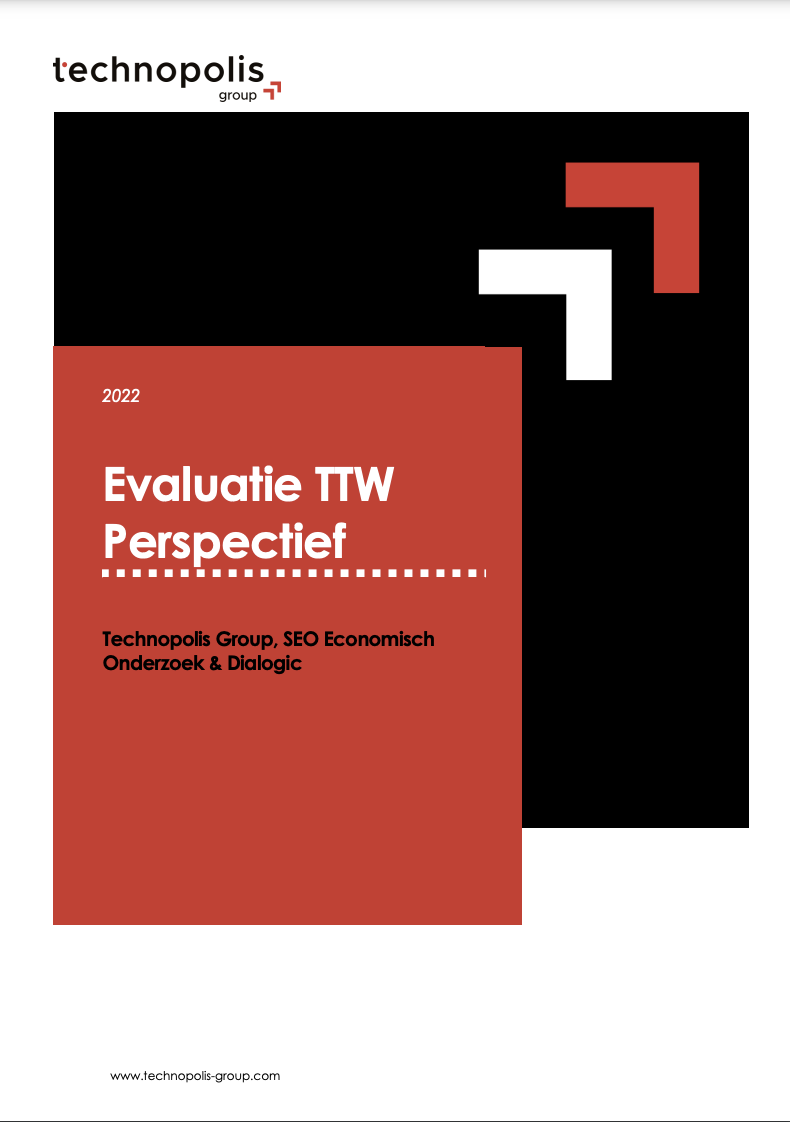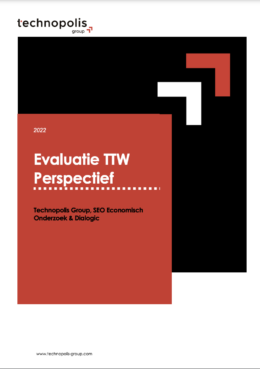Fostering the utilisation of technological research findings through user involvement
Publication date: 16 January 2023 | Report language: NL
Various market and system failures hamper early-stage technological development and research collaboration. To address these bottlenecks, the Dutch government launched in 2006 the Perspectief programme which is aimed at supporting larger consortia of public and private sector actors to collaborate on multi-project programmes for technological development. In these programmes academics perform research, while users (companies and other stakeholders) provide guidance through user committees.
Five-yearly evaluation
In 2022 it was the time again for the five-yearly evaluation of the Perspectief instrument. For this evaluation, covering the period 2016-2020, Technopolis worked together with SEO and Dialogic. The aim of the evaluation was mainly to analyse the positioning of the Perspectief programme in the broader policy landscape and to analyse the effectiveness and efficiency of the programme. A wide range of methods was used including desk study, an analysis of the policy theory, interviews, a survey with applicants and companies, a portfolio analysis, econometrics at both the level of researchers and companies and a learning workshop revolving around the future of the Perspectief programme.
Unique position of the programme in the technology development cycle
It was found that the Perspectief programme has a unique position in the landscape by continuously providing large financial impulses for the high-risk early stages of technology research. Researchers are provided a lot of freedom and are linked closely to users to consolidate the link to the economy and society. Smaller networks of researchers and companies are effectively connected supporting the multidisciplinary of the collaboration and research performed. The combination of these features makes the instrument unique and complementary to other policies.
We conclude from this evaluation that the programme is effective in stimulating university technological research and innovation relevant to users, and in creating the conditions within the ecosystem that can lead to (commercial) use of results. The improved utilization of research results by project participants (as reflected in enhanced firm-level innovation and business performance) is less explicitly observed in the evaluation. Such effects are hard to observe because of both data limitations as well as the very design of the instrument, as the latter is geared towards strengthening knowledge development and diffusion in particular knowledge domains rather than towards helping individual businesses. Recommendations provide avenues for further improvement of the instrument.
International relevance
The final report has recently been sent to parliament and can also be accessed below. For the international community of policy makers working on policies related to research, innovation and technology development the evaluation shows an interesting reflection on the relation between higher policy goals, structuring research programmes and the intervention logic. The evaluation shows how policy objectives and the evaluation framework should be aligned with funded activities, research performed by academics, while at the same time should keep an eye on the link to longer term overall objectives, improved utilisation by strongly involving users.
Resources
Letter to parliament (only in Dutch): https://www.rijksoverheid.nl/documenten/kamerstukken/2022/12/12/evaluatie-van-de-ezk-bijdrage-aan-nwo-domein-ttw-2016-2020
Link to evaluation report (executive summary in English): https://www.rijksoverheid.nl/documenten/rapporten/2022/12/12/nwo-eindrapport-evaluatie-ttw-perspectief-2016-2020




